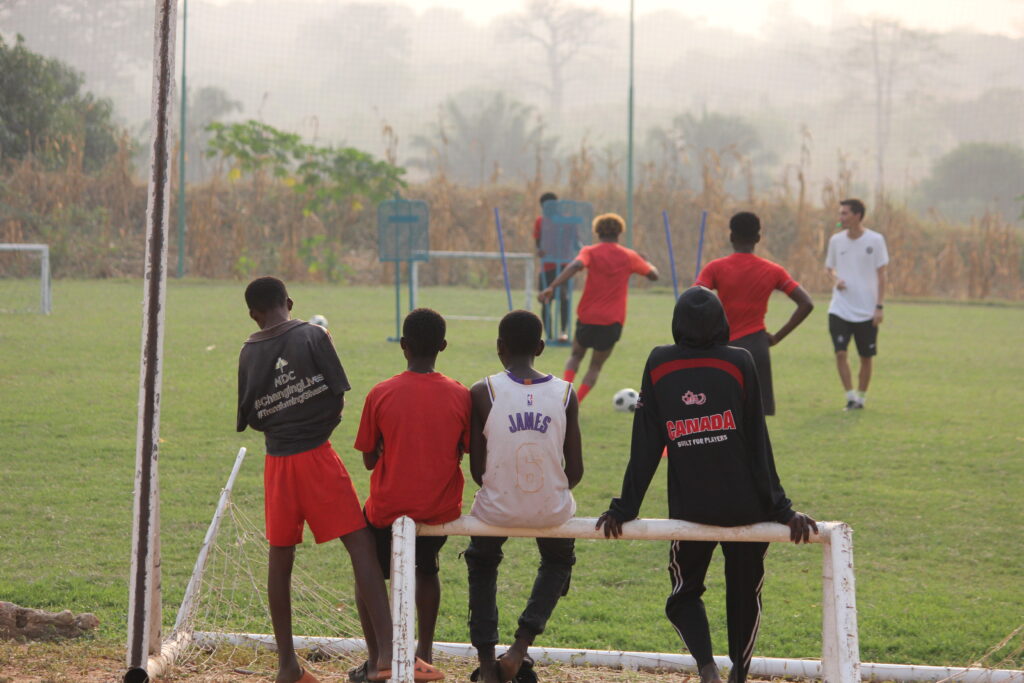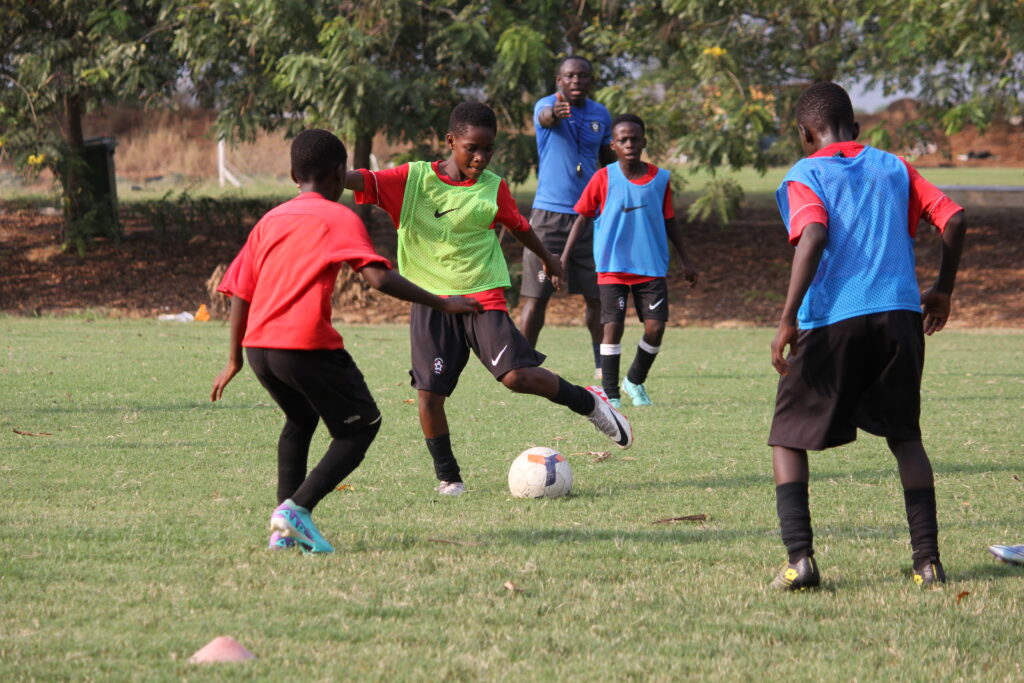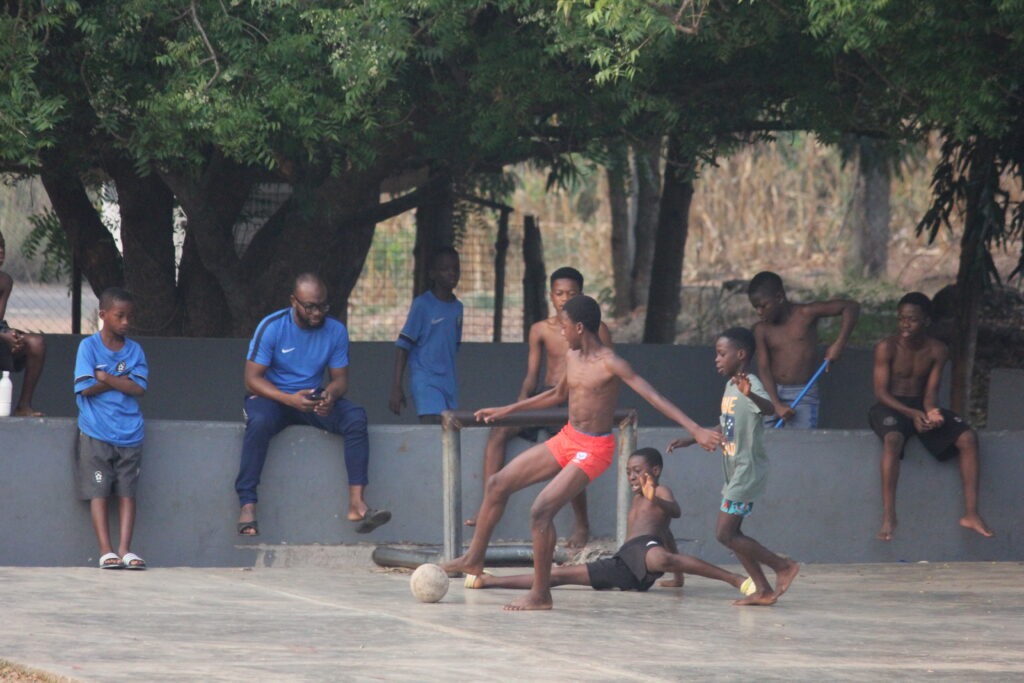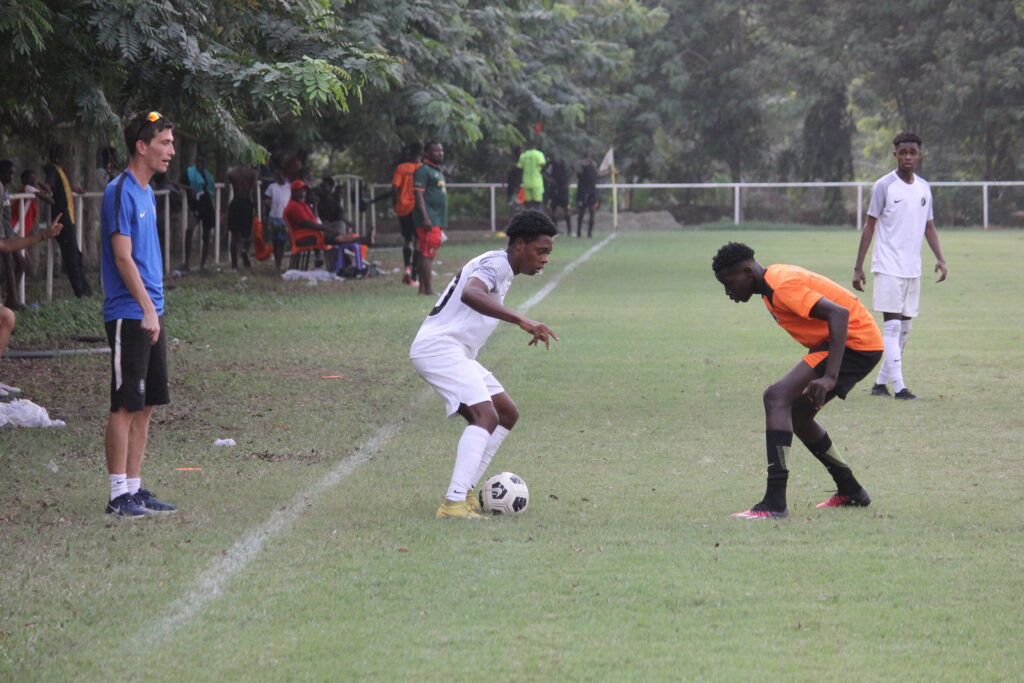NorCal West Africa Coaching Education Trip: Right to Dream

AKOSOMBO, Ghana – Forged from humble beginnings more than two decades ago, Right to Dream now exists as a beacon of hope and success in a continent overflowing with passion for the beautiful game.
Since its inception, the academy has produced dozens of notable alumni who have excelled either on the pitch or in the classroom, most notably current Ghana National Team midfielder Mohammed Kudus, one of the bright stars of an otherwise disappointing campaign in the 2023 Africa Cup of Nations.
Additionally, roughly 50 current professional players and nearly 100 student-athletes studying in the United States once called Right to Dream home including Yaw Yeboah, a recent MLS Cup winner with the Columbus Crew.
So when 12 NorCal Premier Soccer coaches were afforded the opportunity to study at Right to Dream for four days during the last part of their West Africa Coaching Education trip, they jumped at the chance to learn from arguably the best youth development pipeline in Africa.
After a planned first day of training observations was cut short due to potential thunderstorms, NorCal arrived at the academy’s facility well before 7:00 a.m. Thursday morning–the sweltering heat in the area forces the club to train just after dawn and right before dusk each day.

There, the coaches were received by Right to Dream for a series of meetings that involved learning from the organization’s Managing Director, Head of Pastoral Care, Head of Football, Head of IT and Robotics, Head of Facilities, Head of School, and Head of Charter and Purpose.
According to the academy’s Managing Director, Eddie Mensah, Right to Dream exists as so much more than a producer of talent–there, academics, football, and character development go hand-in-hand and one does not succeed without the other.
“Football talent is everywhere,” Mensah said. “The ones who succeed are the ones with character.”
While Right to Dream produces many top professional players, including current West Ham and Ghana National Team star Mohammed Kudus, the vast majority of the student-athletes in the program end up obtaining an education they wouldn’t have access to otherwise. For those students, the pathway involves enrolling at a boarding school for their high school years in the United States, followed by playing in college. Some of these students even end up playing in Major League Soccer afterwards.
“The education pathway in the US is the best for me because there are so many ex-professional players in Ghana who have no money,” Mensah said. “We want to prepare our players for a life after soccer.”
After Mensah spoke, NorCal was greeted by the Football Department of Right to Dream, who laid out the challenges and successes built through the organization.
Many of the players the academy selects come from communities where nutrition is lacking and access to schooling is not consistent. According to the Football Department, some of the issues they deal with are kids feeling homesick and failing to meet basic nutritional needs when returning home during their breaks.

“How do we make sure the players are healthy when they go home?” Liban Mude, the organization’s Head of Football, asked. “Some of our players always lose weight when they go back home.”
To combat this, Right to Dream visits each home to try to educate the families and rectify this issue.
Also something the academy combats: the stereotype that African players are physical and athletic but lack in the tactical aspects of the game.
In their battle against this, the coaches teach players multiple formations and systems and ensure that each of their young athletes can fully understand each and is ready to perform regardless of the circumstances.
“We teach our players tactically and cognitive skills but design our sessions to let them find their own solutions,” Mude said. “This program is designed to eliminate those negative stereotypes.”
After hearing from all of the officials at Right to Dream, it was finally time to attend training and games involving the academy teams.
For some, such as PDP Assistant Director Justin Selander, these trainings and games provided the culmination of a longtime relationship with Right to Dream that has been established with PDP thanks to the pair of organizations participating in Gothia Cup each year.
On the boys side, Right to Dream dominates the world’s largest youth soccer tournament, while NorCal’s PDP has consistently challenged for the title on the girls side.

Additionally, NorCal Premier Soccer Director of Operations Andy Farrant, used to work for Right to Dream as a scout and academy manager for several years.
“The first year we went to Gothia Cup in 2017, Right to Dream was the talk of the whole tournament and went on to win it,” Selander said. “At that time we met the staff from Right to Dream because of Andy and started a friendship. Every year that we’ve been back to Gothia Cup, we’ve stayed at the same hotel with their players. PDP has a connection with Gothia Cup, we’ve all been in the last five finals together.”
For Selander, though, this trip was much more about the learning experience than just recognizing his fellow Gothia Cup heavyweights.
“Right to Dream is one of the top 10 youth academies in the world, certainly the top in Africa. It was an awesome opportunity for us at NorCal to see how sophisticated, detailed, and complex their whole academy and structure is and how they have a very intense scouting procedure,” Selander said.
Added California Odyssey Technical Director Vitalis Otieno: “Right to Dream is a youth development academy that is concerned with developing the whole person. That’s what sets it apart from the rest in my view. The three core pillars are academics, football, and character development.
“If you are fortunate enough to come out of there, you are a well-rounded human being with a career pathway that involves football or any other realm born out of academia,” Otieno added. “I was blown away as I only expected soccer to be its main focus, however, it’s really a prep school with an emphasis on academic development.”












